Gender At War PT II: Films Portraying Women On The Front-line
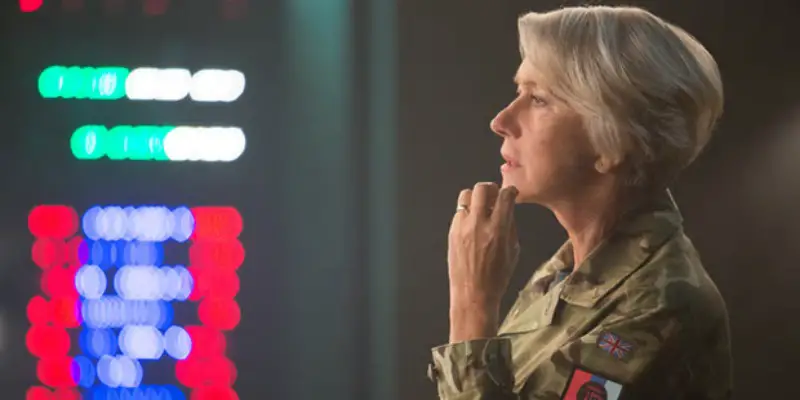
Becky spends her days working in TV and she spends…
In part one of ‘Gender at War’, we looked at several films which have changed the perception of women in war.
Traditionally, women have been pushed to the side – presented as Madonnas (wives, mothers or whores) with no space for them in the gritty action. The increased presence of women as soldiers in war films (instead of passive grieving objects) has forced other questions about the act of war to arise.
For instance, as we discussed in part one, Sicario uses the character of Kate (Emily Blunt) to talk about corruption within the FBI and DEA. This is possible because Kate is an outsider, both in gender and background. Likewise, Talya Lavie utilized the typically feminine task of office administration to showcase the absolute banality of the Israel-Palestine war in Zero Motivation.
Placing women in the frame of war films changes the tone and focus of the film, and we can see much more of this in the films below.
Mulan (1998, Tony Bancroft & Barry Cook)
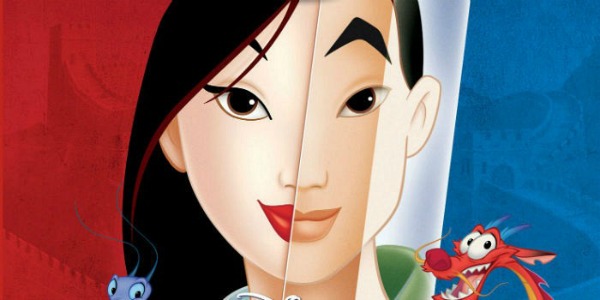
Based on a true story (like many war films), Mulan is probably the only Disney film to depict a woman fighting in an actual war. It’s also, being a Disney film, aimed at children – an audience that a great many war films usually avoid. Mulan, a young girl, joins the Chinese army under the guise of being a man in order to fight for her country.
The film takes place during the Han Dynasty, and Mulan dresses up like a man to take her father’s place in the army. The only reason she joins the army is to save her father from conscription, not because she actually wants to go and fight. Mulan sacrifices her own life for her father to stay at home and get better.
Mulan’s story is a very traditional mistaken identity scenario, with a catch. Whilst in training, she becomes an incredibly skilled and talented warrior to rival her male peers. The loud and clear message is not simply ‘girls can do what boys can’ but ‘we are not suited to certain things because of our gender’.
Mulan has no predisposition for cooking and cleaning just because she is a woman. She doesn’t thrive on the battlefield because of her gender, but because of the way society views her gender. She works harder, because she knows she has to.
This is a very strong message, especially for the audience of young girls who are most certainly the target consumer of this film. It’s a huge step away from the traditional Disney princesses who rely on men to save them. Mulan takes her life into her own hands and consequently becomes a role model for standing up for yourself.
Mulan might be considered a ‘soft choice’ in the genre of war films, I mean it is for children, but it undermines so many of our preconceptions about gender and inherent masculinity.
In Our Name (2010, Brian Welsh)
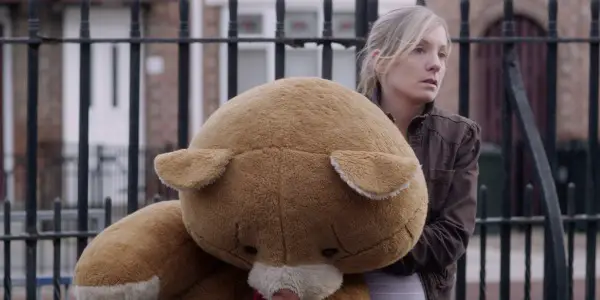
There are few British films which go to great length to criticise or comment on the Iraq war, but In Our Name is one of them. Brian Welsh’s 2010 film details the life of Suzy (Joanne Froggatt), a soldier attempting to fit back into civilian life after returning from Iraq.
She has trouble accepting the things she has done whilst on the front-line, not made easier by her fellow soldier husband Mark (Mel Raido) whose own experiences of war have had an effect on him as well.
Whilst Suzy’s memories cause her to become isolated and anxious, Mark becomes angry and aggressive when Suzy can’t fit back in to her normal life. Tensions rise, and after a horrifying attack on a Muslim taxi driver (instigated by Mark’s friends and partially carried out by Suzy), Suzy realises the extent to which her own internal anger is affecting her. She also realises the full extent to which Mark’s own experiences of war have affected him, and she decides to leave with her daughter.
In Our Name could very easily have gone into cliché territory with its narrative, and sometimes almost slips up on itself, but for the most part is a very accomplished film. The reality of war has taken its toll on Suzy and though she tries to stay strong, it is clear that she is not coping.
Suzy’s fragmented relationship with her daughter makes her even more unstable, and her breakdown in the school classroom after being asked to describe a war zone perfectly captures the emotions that she is feeling.
In a very real sense, Suzy has gone from living in one war zone in Iraq to another in her own home in Newcastle. Mark is aggressive and not the person that Suzy thought she knew. There is a split between the more ‘masculine’ way of handling overwhelming emotions, which is to shout and become violent (as Mark does), and the way in which Suzy closes in on herself, choosing to try and keep her emotions inside (a typically feminine response).
Suzy partakes in the assault on the taxi driver, but is forcibly stopped by the other men when she cannot control herself. The implication here is that unruly aggression is no way to handle trauma, but for the male characters there is no other way. Suzy has a choice – to fall into that endless cycle of anger or to try and regain control over her life.
Whilst the third act begins to fall into cliché-thriller territory, Welsh ensures that his characters are well thought through. Suzy represents the struggle of all soldiers returning home. Suzy’s identity as a mother also affects her ability to think clearly around her child; haunted by the death of an Iraqi child, she becomes overly paranoid and protective of her own daughter.
In Our Name is not perfect, but it unravels and challenges our ideas about the nature of war, and whether it’s even justified at all.
The Invisible War (2012, Kirby Dick)
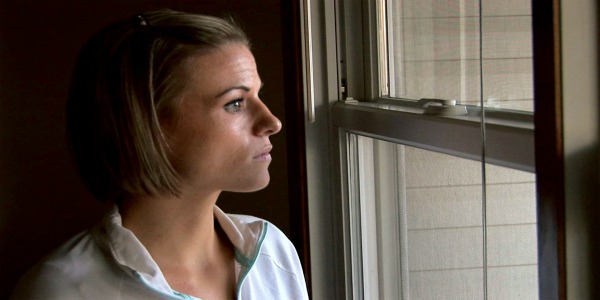
Kirby Dick is renowned for his brutally honest documentaries, and The Invisible War does not buck this trend. A compilation of interviews and testimony from women who have been sexually assaulted by their peers whilst serving in the US military, The Invisible War is a hard, but important film to watch.
I had no idea the scale of sexual assault in the US military, and the numbers are truly shocking. 20% of all active duty female soldiers are raped or sexually assaulted. Often this is by a commanding officer, the person responsible for the wellbeing of their fellow officers.
The commanding officer is also the person responsible for processing the claim of sexual assault or rape by the victim – there are very few ways to get around this and often by trying to go higher up the chain of command, life in the army is only made harder for the victim.
It is estimated that a staggering 22,800 women are sexually assaulted every year – and many of the soldiers, senators and prosecutors in the film believe this number to be significantly higher due to the amount that goes unreported.
Whilst the statistics and the first hand testimony of the victims was hard hitting, it’s the blatant cover up from US military officials that shocks the most. Interviewed is Dr Kaye Whitley, director of the Sexual Assault Prevention and Response Office – widely known among victims to be an absolute waste of time.
Their main job appears to be putting up victim-blaming posters, one of which reads “Don’t risk it. Wait until she sobers up”. Is this the 1950’s? When asked about the statistics of perpetrators re-offending, or the statistics of serial offenders – Dr Whitley replies that they simply do not have the information on that.
It seems unbelievable that a department dedicated to the prevention and response of sexual assaults in the military would not keep any kind of record of re-offending perpetrators. But, as we later see, a tiny percentage of those who commit these crimes never see any kind of punishment.
In fact, in the credit roll at the end of the film, we see that many of these men have gone on to win awards, be promoted and to have an incredibly successful life in the military. Injustice doesn’t even begin to cover it.
What makes The Invisible War so poignant is Dick’s commitment to simplicity. We listen to stories from survivors, they are given the space in which to talk and be heard – for some of them it feels like it may the very first time they have been heard.
It’s not over-dramatised, the anxiety and discomfort is very real and makes for a tough watch. Veteran Kori Cioca’s story is one that stands out as we follow her journey to try and bring a lawsuit to the US Military, along with several other veterans.
She has been unable to eat solid foods for five years, and takes numerous daily medications, after her assailant hit her so hard across the face that he dislodged the discs in her jaw. Kori cannot seek financial medical help from the army because she was two months short of her compulsory two year conscription.
Kori left the military due to her injuries and PTSD following the attack. Tell me, who is really being punished here? The Invisible War is an important film and one that details a side of war that the vast majority of citizens could never comprehend.
Eye in the Sky (2015, Gavin Hood)
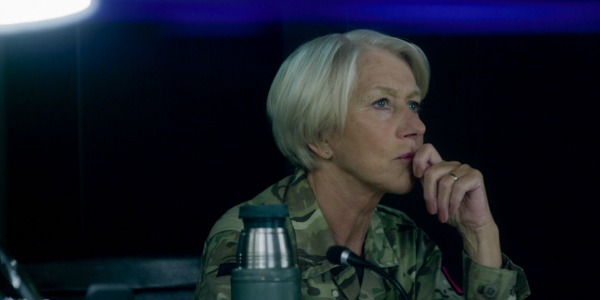
The latest film to highlight the ethical (or not so ethical) side of modern warfare is Gavin Hood’s slick thriller Eye in the Sky. It’s an accomplished film, which is utterly gripping from beginning to end, but is also one that seeks divide audiences after watching it. Despite the film’s very clear message that drone warfare is a completely unexplored moral ground, and there’s more grey than any other colour, there are two definitive sides to the issue presented within Eye in the Sky.
The British government must decide whether to action the firing of a missile into a house full of suicide bombers and save the lives of countless future civilians. But if they permit this to happen, the life of a young girl within the fatality radius will be killed by the blast.
Eye in the Sky presents a number of moral and ethical issues concerned with drone warfare (which is being used more and more frequently in modern war zones), including the laughable bureaucracy of the government, the disconnected nature of modern war and colonialist ideas about Britain (it’s the Prime Minister’s choice to push the button, despite the event occurring in Nigeria).
Eye in the Sky is gripping stuff, there’s no doubt about that. It’s sophisticated and polished, and doesn’t shy away from the big question – is it okay to take an innocent life to save others? Firmly on one side of the spectrum is Helen Mirren’s character Colonel Powell. A stony faced, no-nonsense leader – Powell is running this operation. Or she was. As soon as the mission turns into a kill not capture scenario, Powell must refer up the ranks, and so begins a chain reaction.
On the one side, we have Colonel Powell – militant in her views that the suicide bombers must be stopped, despite the potential cost of human life. On the opposite side, we see MP Angela Northman (Monica Dolan).
Though Northman has a small role, she stresses louder and clearer than any other character (save perhaps Aaron Paul’s character) that this attack would be morally incomprehensible. Between them, there is a string of white collar politicians – all equally as unwilling to take any sort of responsibility for making the tough decision.
What Eye in the Sky does for perceptions of drone warfare, it does equally as well for the women in the film. The physical distance between button pusher/decision maker and target (as is the nature of drone attacks) is heavily criticised. As are the British politicians who seem to be absolutely insensitive to anything but their own guilt.
Mirren, as expected, is fantastic as Colonel Powell. This is her mission, she is here to do her job to the best of her ability. Her resolve to ensure that the suicide bombers are eradicated almost makes her feel robotic, particularly due to the emotional reactions of everyone else around her.
However, Powell is a leader and one of the best in the UK military. She is unoccupied with anything else and her mind is fully on what she believes will be the greatest moment of her career. She is the one character who is unafraid to take the risk that no-one else wants to take, and will go to any end to achieve it. We don’t have to like her (in fact, we probably aren’t supposed to like her) but Eye in the Sky needed Powell in order to be as good as it was.
Special Mention – Full Metal Jacket
The Vietnamese sniper in Stanley Kubrick‘s Full Metal Jacket deserves a place in special mentions for two reasons. The first is that she deserves a place in this article because she is one of the biggest revelations in cinema history. She’s strong and she’s damn good at her job.
So good, in fact, that everyone assumes the sniper must be a guy. It’s a subconscious assumption, we don’t think about it until it’s challenged and when it is – our entire worldview of how we perceive soldiers and gender is overturned.
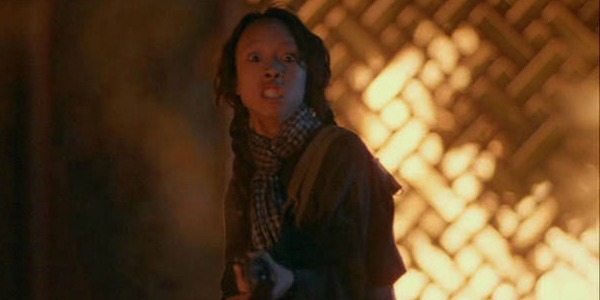
She is only in special mentions as opposed to the rest of these characters though, because she isn’t actually a fully acknowledged character. Her main purpose is to shock the audience… ‘wow, I can’t believe they got beat by a girl’. Kubrick is smarter than that, but in essence this is what her character comes down to – being a woman.
There is no other characterisation, no backstory, no development. She exists in a bubble, to be a female sniper. Like I said, she’s so good that everyone assumes she is a man. A male sniper is just a sniper, a female sniper is a “female sniper”.
Did we miss any films out that have standout female characters in? Do you think there has been a surge of female characters pioneering war films in the last few years?
Does content like this matter to you?
Become a Member and support film journalism. Unlock access to all of Film Inquiry`s great articles. Join a community of like-minded readers who are passionate about cinema - get access to our private members Network, give back to independent filmmakers, and more.
Becky spends her days working in TV and she spends every other minute writing about cinema, TV & feminism. Based in London, she also likes drinking gin, re-watching 'The X Files' and writing about on-screen representation and all manner of things over at femphile.com













